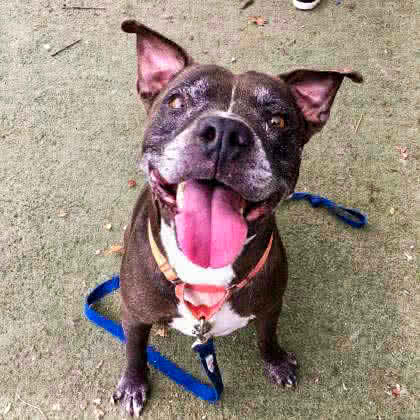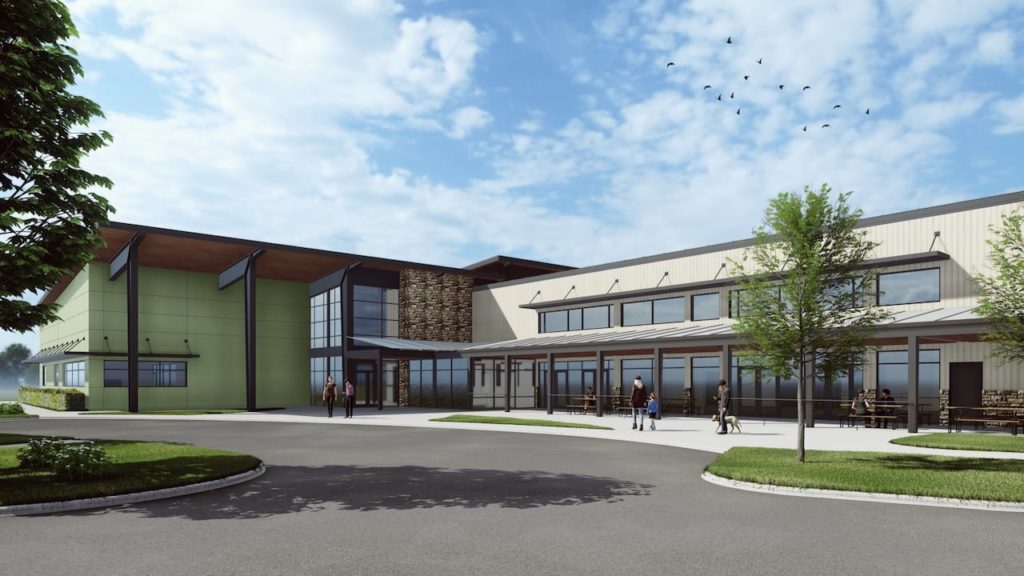If you’re an animal person, you know Humane Society of Charlotte as one of the city’s go-to resources for rescuing, fostering, sheltering and adopting dogs and cats. You’ve probably even been to the Toomey Avenue shelter to make a donation, volunteer or meet and fall in love with a four-legged family member.
But that’s only part of HSC’s story.
Many Charlotte pet people are surprised to know HSC serves local dogs, cats and their owners through a range of programs including behavioral training, wellness clinics, support during short-term financial hardship and more.
It does all this – and placed nearly 3,000 dogs and cats in homes last year – from a facility that was built in the 1970s. That’s a time when Charlotte’s animal welfare needs (and the city itself) looked dramatically different than they do today.


A world-class vision
HSC recently announced the public phase of its We Are Family fundraising campaign to build a world-class animal resource center. The new facility will be the first of its kind for Charlotte and will be built to serve up to 30,000 animals annually, allowing HSC to do so much more to help keep Charlotte’s dogs and cats happy, healthy and safe.
As the no-kill nonprofit closes in on the final $4 million of its $15 million goal, here are five things you might not know HSC does for the Queen City – and how you can help it do more.
Weekly low-cost microchip and vaccine clinic
HSC’s Critter Care Wellness Clinic offers low-cost, high-quality care for all Charlotte-area pets. Available services include microchips; heartworm testing; heartworm, flea and tick prevention; and common vaccinations including rabies, distemper / parvo, kennel cough and more.
“Critter Care is such an important part of our Clinic Services and Community Outreach programming,” says Emily Cook, HSC marketing and communications manager. “It helps keep pets with their families long-term by preventing illnesses that can be devastating both emotionally and financially.”
The clinic is open to the public and does not require appointments. Hours are 9 am to 2 pm every Wednesday and the last Saturday of every month. HSC plans to expand Critter Care’s days of operation in the new facility.
Training for people and their pets
HSC launched its First Class Canine training program earlier this year. Each session is led by the shelter’s behavioral programs manager and spends 90 minutes focused on common behavioral concerns like food and toy guarding. Cook says groups are kept small to ensure lots of one-on-one attention. Look for these Saturday morning pop-up classes co-hosted by breweries and businesses around town this fall.
And expect even more community training and educational programs at the new animal resource center. Think classes to help strengthen the bond between people and their pets – the ultimate goal of which is to increase pet retention rates – and kids’ programs that will nurture empathy, respect and other character-building traits through activities like reading to dogs.


Pet food bank for short-term hardship
When local families and individuals fall on tough financial times, HSC is there to help them feed their pets. Its community Pet Food Bank distributed more than 67,000 pounds of food to more than 8,000 Charlotte dogs and cats in short-term need last year.
“This program helps prevent families from having to make an additional heartbreaking decision to surrender their pet(s) during a time where things are hard enough,” says Cook. “It keeps those pets in the loving homes they already have.”
The Pet Food Bank relies entirely on donations from local retail stores, individuals and corporate- and community-sponsored food drives. Interested in contributing? You can host your own pet food drive or make a donation online.
A place for dog-lovers and do-gooders
With the new animal resource center, HSC aims to create a place for dog-lovers and do-gooders alike. That means pet-friendly amenities like a new community dog park and expanded low-cost, high-quality wellness services.
Its vision also includes welcoming other worthy causes as neighbors on a dedicated, 17.5-acre nonprofit campus on Berryhill Road in west Charlotte. Though the master plan for the grounds is still in the making, Cook says HSC is excited to be leading the charge for this first-of-its-kind space for Charlotte.
How you can help
HSC doesn’t receive federal, state or local government funding, nor is it associated with any other animal welfare groups. That means the majority of its operating budget – as well as the special funding for its much-needed, much-improved animal resource center – comes largely from individual contributions.
Whether you’ve adopted a member of your family from HSC, tapped its myriad wellness and educational programs, or simply appreciate its work, you can help HSC do even more for local pets and their people. To learn more about making an annual donation, contributing to the animal resource center fundraising campaign, or both, visit the We Are Family campaign page.
*Dogs may have already found forever homes. Photos from Humane Society of Charlotte.




